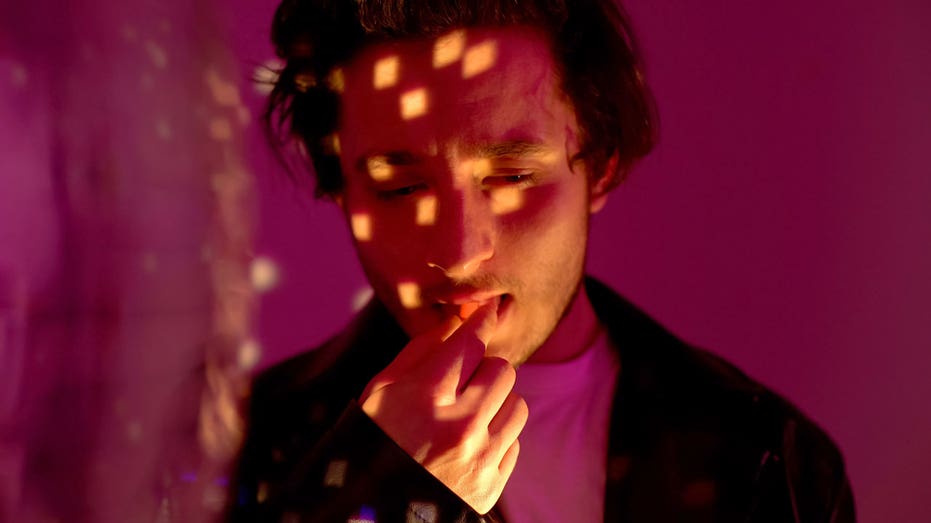Psychedelic drug popular in 1960s could ease anxiety as doctors share warnings
A new study suggests thatlysergic acid diethylamide (LSD), also known as acid, could reduce anxiety.This marks the first-ever trial to evaluate the safety and efficacy of MM120 (a pharmaceutical formulation of LSD) as a monotherapy for patients with moderate to severe generalized anxiety disorder, according to lead author Daniel Karlin, M.D., chief medical officer of MindMed, a biopharmaceutical company in New York.The study waspublished in the Journal of the American Medical Association.THE KEY TO LIVING LONGER COULD BE TIED TO A SURPRISING SUBSTANCE, STUDY SUGGESTSNearly 200 adults between the ages of 18 and 74received either a single oral dose of LSD at various does, or a placebo "dummy pill," for a three-month period, according to a press release.The dosing sessions were individually conducted in private rooms with two trained monitors who observed the participants for at least 12 hours. No psychotherapy was provided.Researchers tracked changes in participants anxiety scores at weeks 1, 2, 4, 8 and 12, with week 4 serving as the main point of evaluation.After the four weeks, patients receiving the highest doses had significantly lower anxiety scores than the others.At 12 weeks, 65% of patients taking 100 milligrams showed benefits, with nearly 50% in remission from anxiety.PSYCHEDELICS AS POTENTIAL MENTAL HEALTH TREATMENT ARE EXPLORED BY TRUMP ADMINISTRATIONResearchers also tested LSD's impact on depression, finding that the highest doses were linked to significant improvements.Karlin shared that the effects of LSD were almost immediate. Side effects of the psychedelic included hallucinations, nausea and headaches.The effects were dose-dependent, with 100 milligrams being the optimal dose. The200-milligram dose also significantly outperformed the placebo. The 25-milligram and 50-milligram doses did not show significant benefits.One possible study complication was"functional unbinding," in which trial participants could correctly guess whether they had received the active medication versus a placebo, according to Karlin.SINGLE DOSE OF 'MAGIC MUSHROOMS' PROVIDES 5 YEARS OF DEPRESSION RELIEF, RESEARCHERS FINDThe drugmaker plansto conduct two large, late-stage trials to track patients over a longer period of time.If the study is deemed successful, MindMed will submit the drug to the U.S. Food and Drug Administration for approval.LSD isclassified as aSchedule I drug, which means its considered to have high potential for abuse and no accepted medical use, according to the Drug Enforcement Agency.Schedule I drugs are not legally allowed to be prescribed, dispensed or used in medical treatment, except for approved research.The FDA has designated LSD, psilocybin and MDMA as "potential breakthrough therapies," Fox News senior medical analyst Dr. Marc Siegel told Fox News Digital.MILEY CYRUS REVEALS THE 'POWERFUL' THERAPY THAT HELPED HER CONQUER STAGE FRIGHT"The key is careful oversight and meticulous research, which monitors both side effects and effectiveness," said Siegel.While this new study shows a "very positive result in around 200 patients," Siegel confirmed that LSD can cause hallucinations.Additional documented side effects may include paranoia, mood swings, increased heart rate and long-term psychosis, according to multiple sources.Hadas Alterman, a psychedelic medicine attorney in Washington, D.C., told Fox News Digital that "LSDs return is not just cultural or scientific, it's regulatory."The expert says psychedelics were "sidelined" due to the "sweeping expansion of FDA authority under the 1962 KefauverHarris Amendments."CLICK HERE TO SIGN UP FOR OUR HEALTH NEWSLETTERThis legislation, also called the Drug Efficacy Amendments, required drug manufacturers to provide substantial evidence of efficacy through well-controlled clinical trials before approval."LSD and other psychedelics have long shown clinical promise, but the excess recreational use in the 1960s pushed researchers away from continuing to study it," Siegel added.Health and Human Services Secretary Robert F. Kennedy Jr.and Department of Veterans Affairs Secretary Doug Collins have conveyed interest in exploring psychedelic therapy.For more Health articles, visitwww.foxnews.com/health"This line of therapeutics has tremendous advantage if given in a clinical setting, and we are working very hard to make sure that happens within 12 months," RFK recently told members of Congress, per AP.Psychedelics advocate Alterman noted that while the support "doesn't replace science," it encourages institutions like FDA to "take this seriously."




